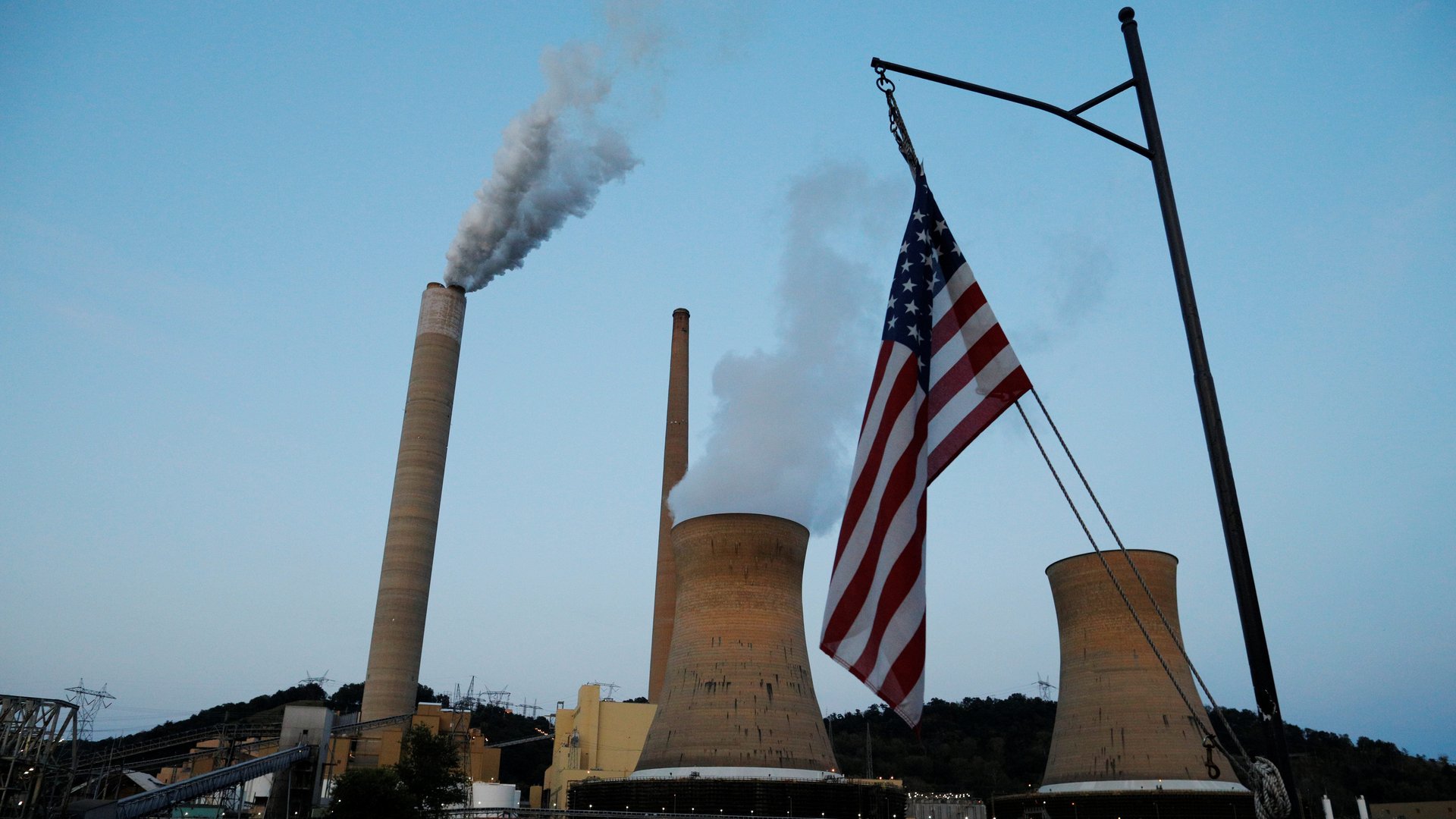RBG’s replacement could undermine the most important climate ruling
If US president Donald Trump succeeds in replacing Ruth Bader Ginsburg on the Supreme Court this year, one of the early cases the new justice is likely to hear could be pivotal in the climate debate. And if the Court rules in favor of the Trump administration, the decision would blunt one of the government’s sharpest tools for fighting climate change.


If US president Donald Trump succeeds in replacing Ruth Bader Ginsburg on the Supreme Court this year, one of the early cases the new justice is likely to hear could be pivotal in the climate debate. And if the Court rules in favor of the Trump administration, the decision would blunt one of the government’s sharpest tools for fighting climate change.
Next month, the DC Circuit Court of Appeals will hear a suit brought last year by a group of mostly Democrat-led states against the administration’s effort to roll back Obama-era regulations on carbon emissions from power plants. Under the Obama regulations, states would face a limit on power-sector emissions, and be able to choose from a variety of options on how to meet the limit. For many states, the rules mean retiring coal-fired power plants and replacing them with natural gas and renewables.
The Trump administration’s replacement regulation scraps this kind of source switching, and merely requires individual coal plants to boost their efficiency. According to the Environmental Protection Agency’s own analysis, the new regulation will reduce carbon emissions by just 11 million tons by 2030, compared to 415 million tons under the Obama plan.
Regardless of the DC Circuit outcome, the losing party is likely to appeal to the Supreme Court. There, a pro-Trump ruling would undermine a 2007 SCOTUS decision, Massachusetts vs. EPA, which established that the EPA can and should regulate CO2 and other greenhouse gases as dangerous air pollutants under the Clean Air Act, said Michael Gerrard, director of the Sabin Center for Climate Change Law at Columbia University. The Massachusetts decision is widely regarded as a key foundation of US climate policy. The 5-4 majority on that decision included Ginsburg and justice Anthony Kennedy, now retired and replaced by Brett Kavanaugh, a Trump appointee.
The end result would be the EPA losing its ability to regulate greenhouse gases—which at the moment is the best tool any post-Trump administration would have to curb climate change, Gerrard said.
Other solutions would still be available: A Democrat-controlled Congress and White House could amend the Clean Air Act to specifically target carbon emissions, since the existing language doesn’t specify pollutants. And there are other ways for the president to crack down on emissions, including tightening regulations on non-greenhouse coal-plant pollutants and vehicle fuel economy standards, and boosting support for renewables.
But as long as such measures face legal objections from fossil fuel and utility companies and their allies among state attorneys general, a more conservative Court—one inclined to adopt a narrow view of the government’s regulatory powers—will be an impediment to climate action.